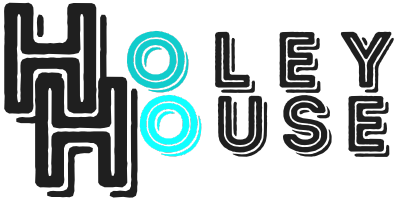When the Line Was Crossed: Healing from Boundary Violations After Incest
There are betrayals, and then there is incest.
This is not just about crossing a line—it’s about obliterating it. It’s about someone who was supposed to protect you becoming the very person who broke you. And when those kinds of lines are erased, when the sacred space of your body, your emotions, your soul are violated by someone who should have been your safety—that’s not just trauma. That’s devastation.
But I need you to know this: you are not broken beyond repair. Yes, you’ve been violated. Yes, you’ve been manipulated. Yes, your boundaries were never allowed to exist in the first place. But your healing is possible. Your wholeness is waiting. And you are not alone anymore.
What Was Taken: A Look at the Boundaries That Were Broken
When someone you trusted—someone you loved—abuses you through incest, they don’t just take your body. They take pieces of your mind, your identity, your sense of self. And worst of all, they teach you that you’re not allowed to say no. That what you feel doesn’t matter. That your pain is your fault.
Let’s name the specific ways they crossed the line:
Physical Boundaries
Your body was not yours. You were taught that someone else’s desires mattered more than your safety, more than your consent. You may have learned to disconnect—to freeze, to float, to disappear. That was survival. Please honor that.
Emotional Boundaries
You may have been groomed with love and affection, only for it to turn into manipulation, confusion, and guilt. You were pulled into a storm where love was tangled with harm. That’s not love. That’s abuse.
Psychological Boundaries
They didn’t just hurt your body—they tried to rewrite who you are. You might struggle with knowing what you want, what you feel, or even who you are. That’s not weakness—that’s the aftermath of emotional erasure.
Generational Boundaries
They flipped the roles. They made you the keeper of their secrets, the bearer of their shame. You were a child made to carry the sins of an adult. That’s not your burden. It never was.
How It Shows Up Now: The Invisible Cost of Those Violated Boundaries
Many of us walk around in adult bodies with child-sized wounds. Those early boundary violations shape the way we love, trust, speak up, or shrink down. Here’s what that might look like:
- You say yes when you want to say no.
- You disappear in relationships. Or you push everyone away.
- You over-explain, over-give, over-accommodate.
- You feel guilty for having needs.
- You question whether the pain even happened at all.
This is not because you’re weak. It’s because your earliest lessons were about survival, not safety.
The Return: Reclaiming Your Boundaries, Your Body, Your Self
Healing is not about becoming who you were before the abuse. It’s about becoming who you were meant to be before trauma got in the way. It’s about remembering that you get to decide what comes in and what stays out. It’s about learning—maybe for the first time—that you are allowed to take up space.
Let me offer you some anchors for the journey:
Acknowledge Your Truth
Your story is real. Your pain is valid. Don’t let silence steal another piece of your soul. Saying, “This happened to me,” is not weakness—it’s power.
Rebuild with Support
You don’t have to do this alone. Trauma-informed therapy, somatic healing, EMDR, or simply being witnessed by someone who sees you without shame—all of that matters. All of that heals.
Learn the Language of Boundaries
Start small. “No, thank you.” “I’m not available right now.” “That doesn’t feel good to me.” Your voice is holy. Use it, even if it trembles.
Reconnect with Your Body
You are not just a mind—your body holds your story. Movement, breathwork, dance, even stillness—these are ways to return home to yourself.
Build Safe Containers
Find spaces where your boundaries are honored and your wholeness is protected. That could be friends, chosen family, or sacred solitude.
Release Shame That Was Never Yours
Shame is a liar. It tells you the abuse was your fault. It wasn’t. It tells you to hide. Don’t. It belongs to the abuser—not to you.
Be Gentle With Yourself
You’re healing things that were never supposed to happen to you. Some days you’ll rise. Some days you’ll cry. Both are sacred. Both are progress.
Your Healing Is Sacred Work
You are not here just to survive. You are here to reclaim. To rise. To rebuild the boundaries that should have protected you—and to know that from this day forward, you get to decide who has access to you.
Healing from incest is not just about what was done to you. It’s about who you’re becoming now.
And you, my dear soul, are becoming whole.
You are safe now.
You are worthy of peace.
You are worthy of boundaries that no one gets to break.
And you are not alone—not anymore.

0 Comments